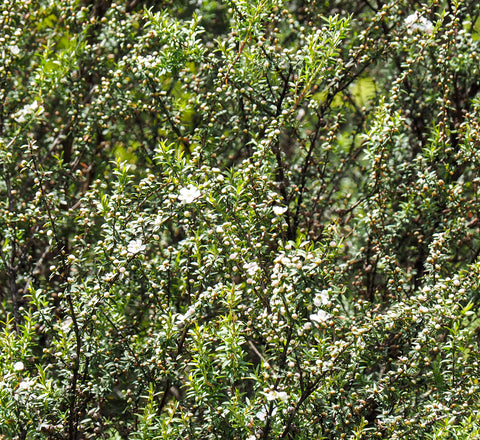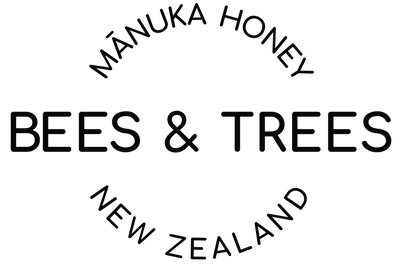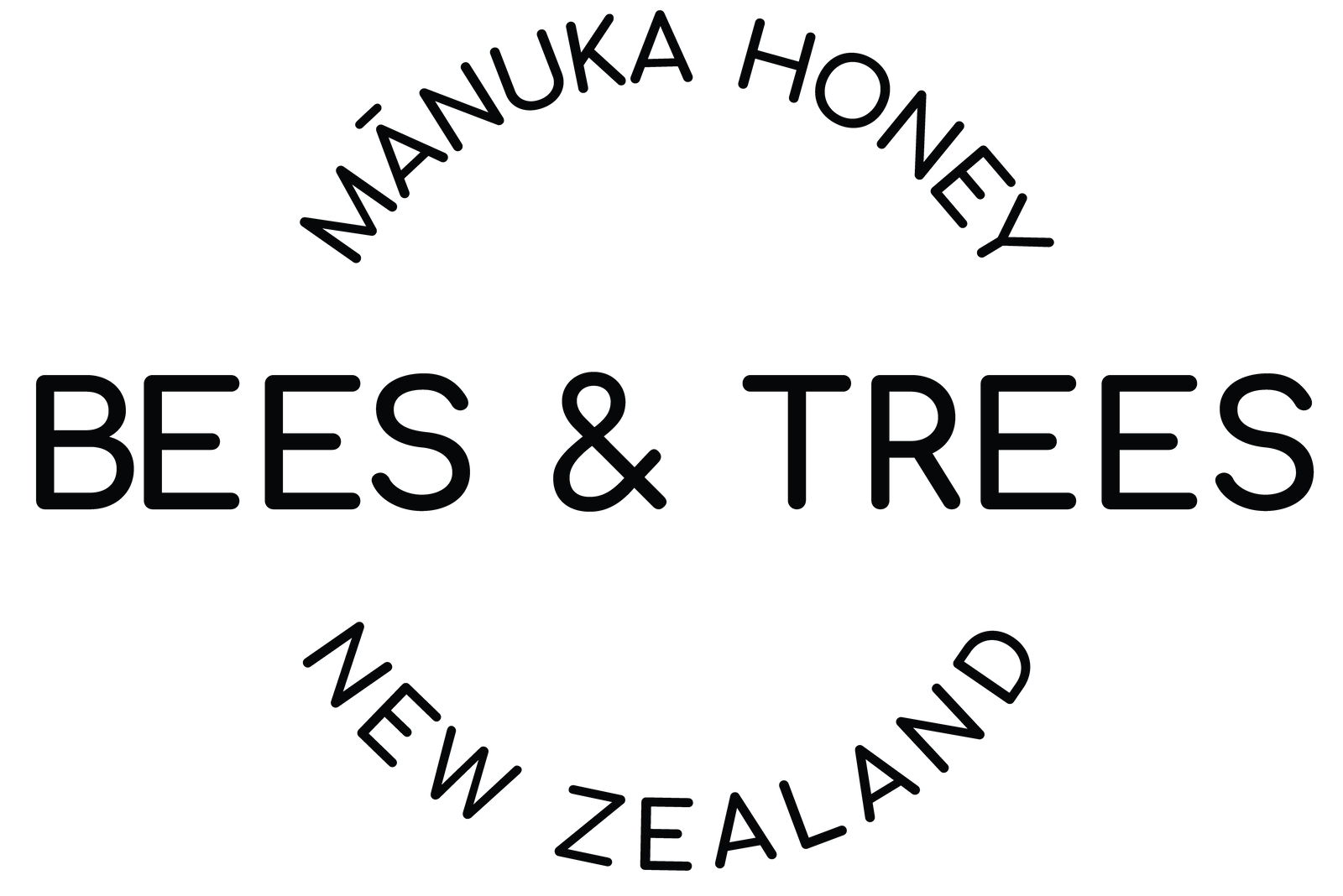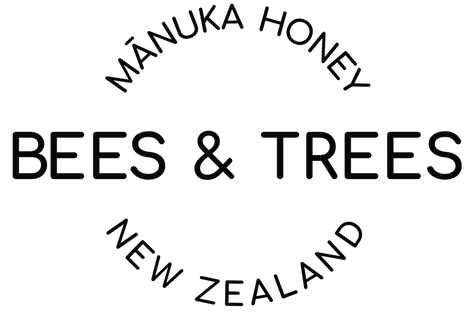The 2020 Manuka honey season is officially starting in the Taranaki region of New Zealand. Bees & Trees founder, Mike Everly, has been in New Zealand since early December. Mike has been working with the Bees & Trees team preparing for the season. One of Mike’s primary focuses over the past six weeks has been monitoring the development of the Manuka buds trying to predict when the flowering and corresponding nectar flows would be starting. In order to produce a pure, high-grade Manuka honey, hives must be moved into remote Manuka dense areas as the trees start flowering. The timing of the flowering can be anywhere from early December to mid-January. This season has brought a late flowering, probably due to the cooler temperatures this November and December. This season looks like it is shaping up to be a very good one in terms of the amount of buds on the trees.
The picture below shows a tree almost white with bud, ready to burst forth into flower. The amount of bud on the trees this year far exceeds what we’ve seen in previous years. This bodes well for the season’s potential, but it still requires good weather while the Manuka is in bloom. Mike took this photo the day after Christmas, and while temperatures have stayed cool through early January, it has started to warm up over the past few days.

As a result of warmer temperatures, we’re seeing the flower starting in some areas. In full bloom, the trees look like the image below, taken on January 12th in the Rotokare Scenic Reserve. Bees & Trees partners with Rotokare, a non-profit wildlife nature reserve focused on restoring the native bird population to the Taranaki region. We are allowed to use their land for letting our bees forage on their Manuka trees and in exchange we donate Manuka honey back to them for fundraising helping to preserve this pristine area of New Zealand.
With Mother Nature doing her part in grand style this year, it’s up to our bees to do their job next. The forecast for the next ten days looks really good with warmer temperatures and lighter winds, both of which should contribute to good honey production.
Honey is a popular food that can be traced back to 8,000 years ago. It has propolis, a natural resinous substance produced by bees, which possesses beneficial properties for health. Propolis adds to the remarkable qualities of honey, making it a truly remarkable natural resource, highlighting the natural sweetening benefits of Manuka honey compared to refined sugars.
***
Click here to purchase Bees & Trees Manuka honey.

To learn more about Bees & Trees, click here.
To ask a question, click here.






